Youdi Li
Pyramid-Driven Alignment: Pyramid Principle Guided Integration of Large Language Models and Knowledge Graphs
Oct 17, 2024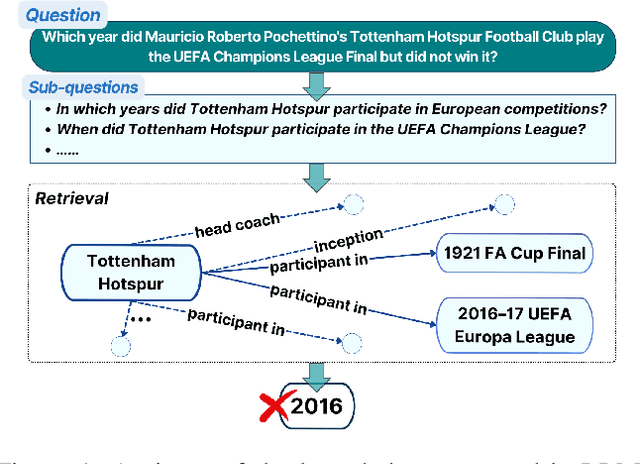

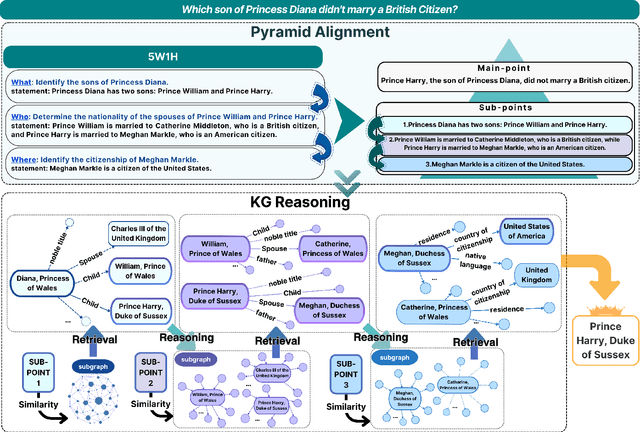
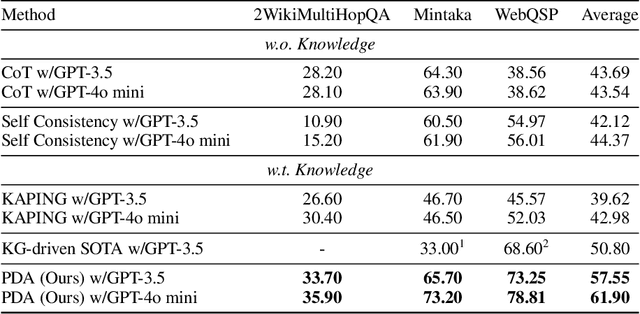
Abstract:Large Language Models (LLMs) possess impressive reasoning abilities but are prone to generating incorrect information, often referred to as hallucinations. While incorporating external Knowledge Graphs (KGs) can partially mitigate this issue, existing methods primarily treat KGs as static knowledge repositories, overlooking the critical disparity between KG and LLM knowledge, and failing to fully exploit the reasoning capabilities inherent in KGs. To address these limitations, we propose Pyramid-Driven Alignment (PDA), a novel framework for seamlessly integrating LLMs with KGs. PDA utilizes Pyramid Principle analysis to construct a hierarchical pyramid structure. This structure is designed to reflect the input question and generate more validated deductive knowledge, thereby enhancing the alignment of LLMs and KGs and ensuring more cohesive integration. Furthermore, PDA employs a recursive mechanism to harness the underlying reasoning abilities of KGs, resulting in more accurate knowledge retrieval for question-answering tasks. Our experimental results reveal a substantial performance advantage of PDA over state-of-the-art baselines, with improvements reaching 26.70% and 26.78%.
ODA: Observation-Driven Agent for integrating LLMs and Knowledge Graphs
Apr 11, 2024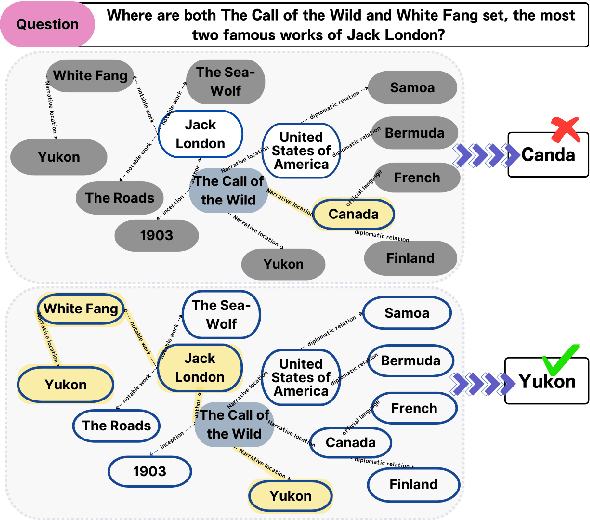

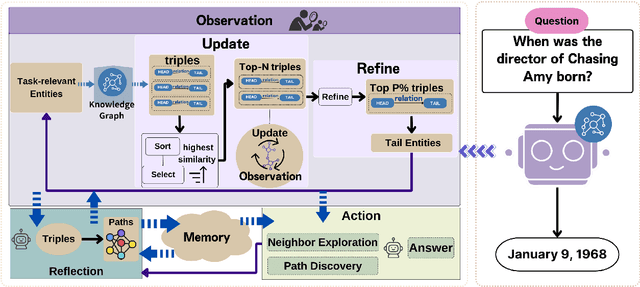

Abstract:The integration of Large Language Models (LLMs) and knowledge graphs (KGs) has achieved remarkable success in various natural language processing tasks. However, existing methodologies that integrate LLMs and KGs often navigate the task-solving process solely based on the LLM's analysis of the question, overlooking the rich cognitive potential inherent in the vast knowledge encapsulated in KGs. To address this, we introduce Observation-Driven Agent (ODA), a novel AI agent framework tailored for tasks involving KGs. ODA incorporates KG reasoning abilities via global observation that enhances reasoning capabilities through a cyclical paradigm of observation, action, and reflection. Confronting the exponential explosion of knowledge during observation, we innovatively design a recursive observation mechanism. Subsequently, we integrate the observed knowledge into the action and reflection modules. Through extensive experiments, ODA demonstrates state-of-the-art performance on several datasets, notably achieving accuracy improvements of 12.87% and 8.9%.
 Add to Chrome
Add to Chrome Add to Firefox
Add to Firefox Add to Edge
Add to Edge